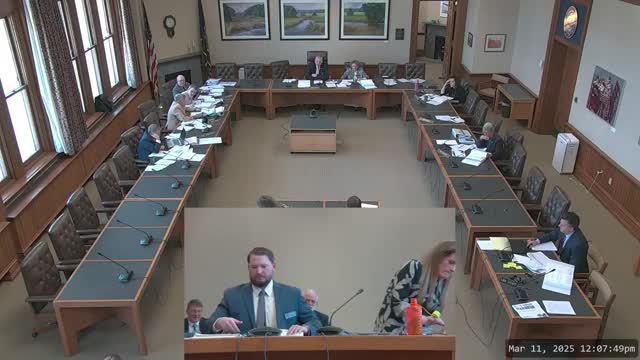Article not found
This article is no longer available. But don't worry—we've gathered other articles that discuss the same topic.

Division III schedules bill review; three bills listed for Monday and ongoing work planned for HB547 county reimbursement issue

State leases Hampstead Hospital to Dartmouth Health; lease proceeds reserved for capital improvements

New Hampshire Hospital credits Mission 0 and care-traffic control for shorter ED waits but reports a large discharge backlog

Glencliff Home cites high vacancies and asks for funded positions to sustain discharges to community

